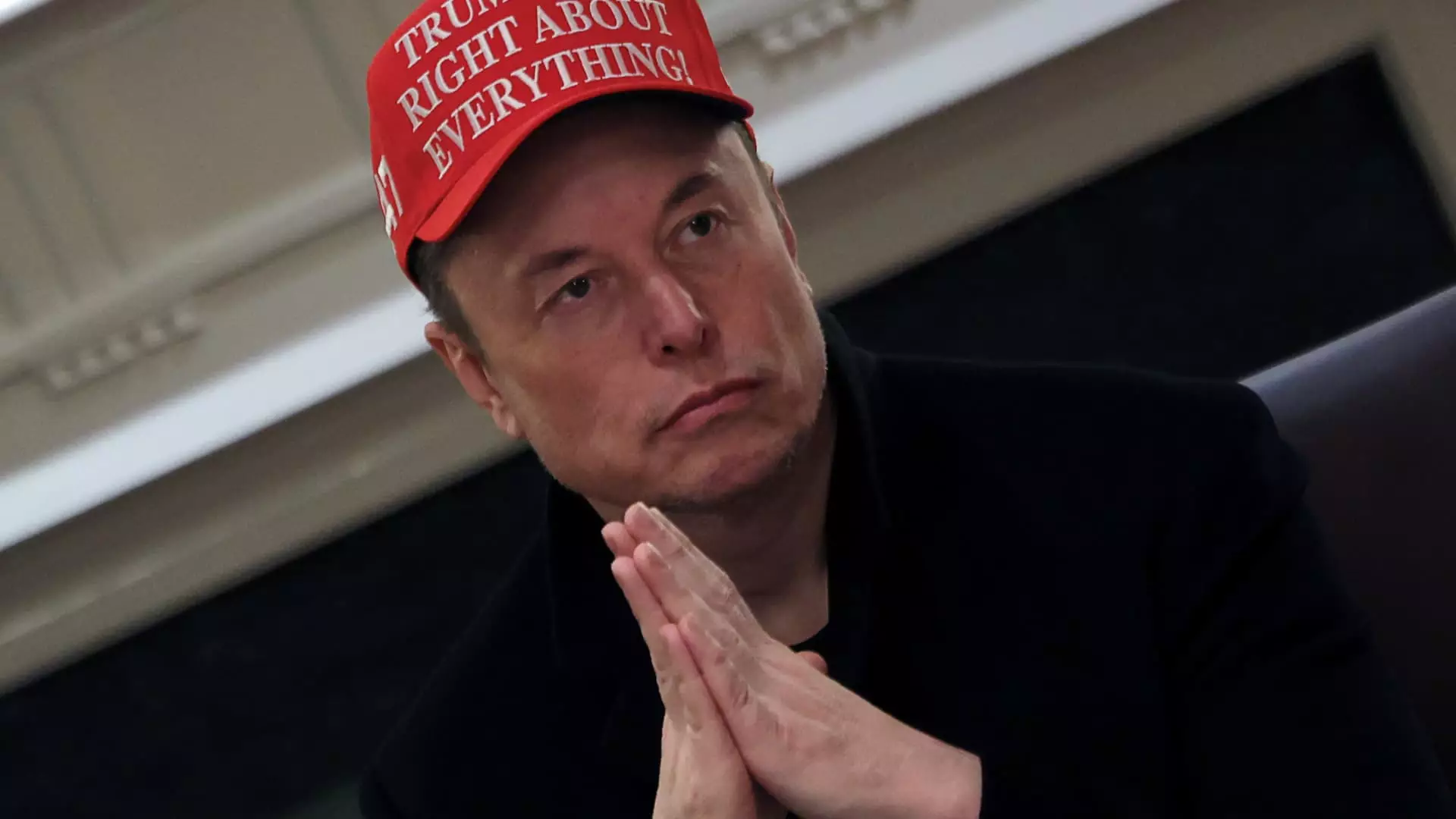Tesla, the electric vehicle beacon of innovation and sustainable energy, recently demonstrated the kind of stock volatility that leaves even seasoned investors checking their heart rates. On Thursday, shares plummeted by 7.3%, closing at $252.40—a stark contrast to the previous day’s exhilarating rise of 23%, marking the company’s most significant market surge since 2013. Herein lies the crux of the current economic climate: a titanic clash not just between Tesla and global competitors, but a foundational struggle against the unsteady backdrop of U.S. trade policies and tariffs. With a staggering 38% decline recorded so far this year, Tesla stands out as the most affected entity among the tech megacap companies. This extreme volatility is perplexing and troubling, especially for an automaker with ambitions soaring as high as the electric vehicles it produces.
Trump’s Tug-of-War: Tariffs, Talks, and Tesla
The stock market rollercoaster began its latest descent following a series of announcements from President Donald Trump—an individual whose ever-fluctuating policies could give any market analyst a headache. The previous day, he announced a temporary halt on steep tariffs affecting various trading partners—a reprieve meant to foster negotiation. The very definition of mixed signals, Trump set a minimum 10% tariff while simultaneously hiking duties on Chinese imports to an eye-watering 145%. The underlying anxiety affects not only investors but also manufacturers like Tesla, which finds itself mired in uncertainty. As Europe and China reciprocate with their own tariffs, the fate of Tesla hinges on negotiations that seem as unpredictable as the stock itself.
Financial Analysts Hit the Panic Button
In response to this turmoil, major financial firms like UBS, Goldman Sachs, and Mizuho have significantly lowered their Tesla price targets. Their assessments reflect a growing skepticism about Tesla’s profit margins amidst a turbulent political climate and spiraling costs brought on by tariffs. UBS, for instance, predicted a continuous downward slope for Tesla stock driven by a range of issues, including structural concerns about demand. With Tesla’s past reputation for delivering precisely what the market craved weakening, investor confidence is understandably fragile. With every rally followed by a plummet, the market is like a shaken can of soda—ready to explode at any moment.
Elon Musk: The Controversial CEO
No conversation about Tesla can escape the influence of its charismatic yet controversial CEO, Elon Musk. His positions have let Tesla tread perilous waters, especially as he navigates his dual roles, attempting to juggle business interests while acting as one of Trump’s advisors. Musk has recently faced backlash for endorsing contentious political positions in Europe, most notably aligning with Germany’s right-wing AfD party. Such political inclinations have not only alienated sections of the market but also brought scrutiny upon Tesla’s operational credibility and brand image. Recent data from the European Automobile Manufacturers’ Association illustrates troubling declines in sales, raising red flags for a company that financially depended on robust sales across Europe and Asia.
The Strains of Competition and Supply Chain Vulnerabilities
Tesla’s experiences reflect broader concerns over increasing competition in the electric vehicle sector—particularly in Europe and Asia—where local manufacturers are snatching away market share. Coupled with the imposed tariffs, these competitive tensions present a formula for disaster. The westward sourcing of parts from regions like China places Tesla in jeopardy should relations further sour. The current geopolitical climate, exacerbated by Musk’s outbursts against Trump’s trade adviser and his appreciation for the hard stance against China, converges into a storm that endangers Tesla’s ambitious growth narrative.
Contrary to its status as an innovative disruptor, Tesla faces a paradoxical identity: as the face of climate-friendly technology grappling with economic realities dictated by international policies. The selloff on Thursday evidently provided some consolation to short sellers—those betting against the stock—after being unceremoniously crushed in previous rallies. As S3 Partners highlight, Tesla remains one of the most shorted stocks, demonstrating how investor sentiment oscillates wildly in response to market news. Tesla’s journey exposes a complicated yet familiar terrain that intertwines corporate ambition with political chaos—a baleful reminder of how quickly fortunes can change.

